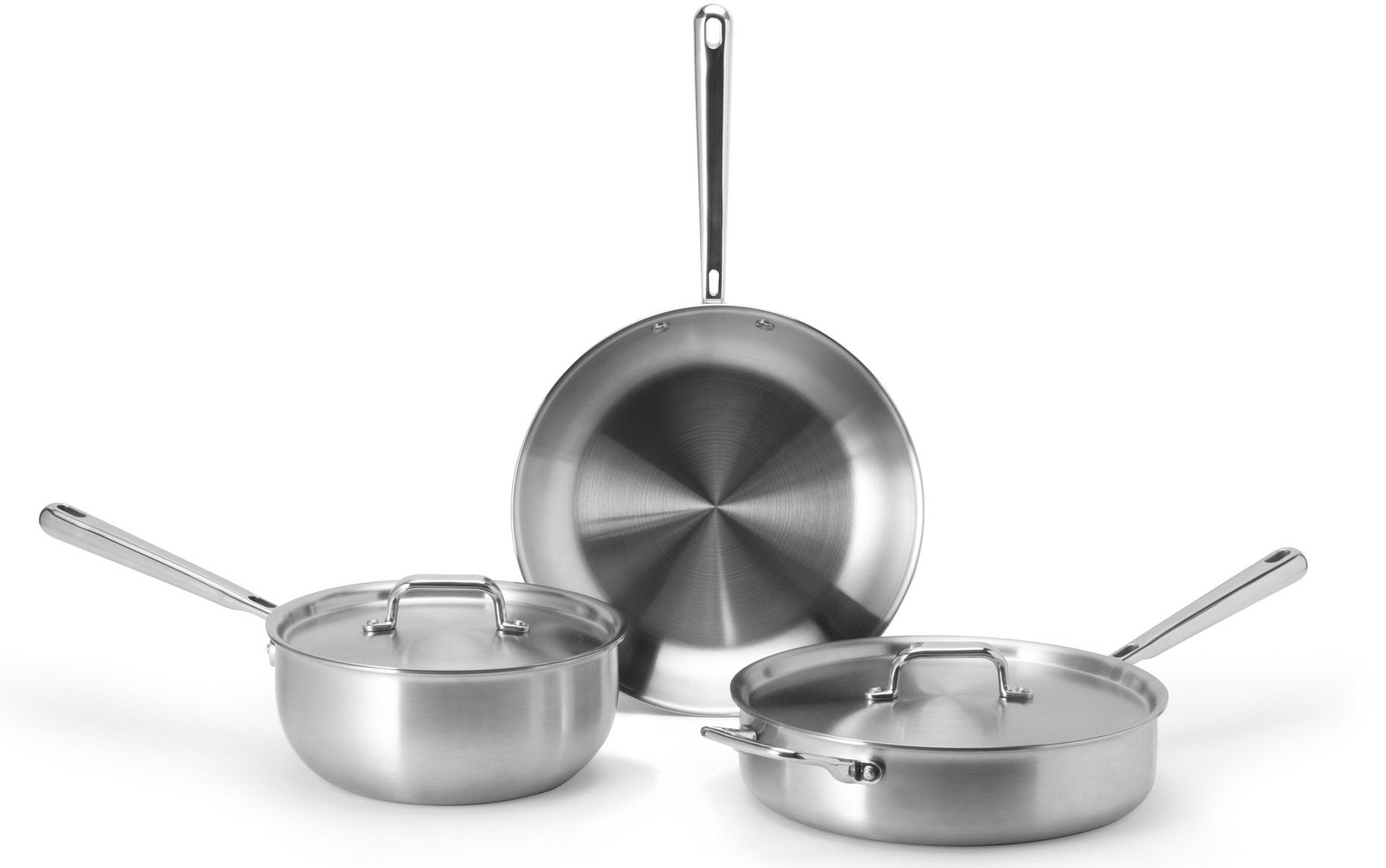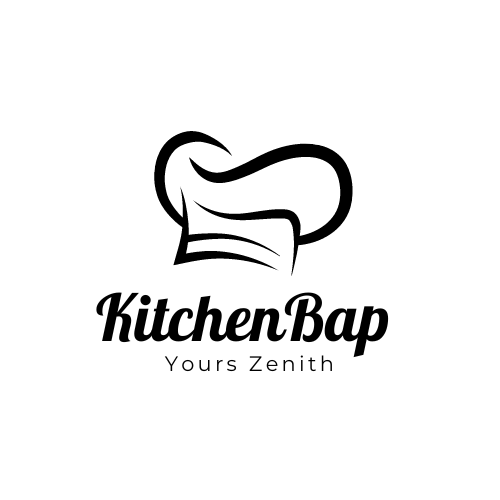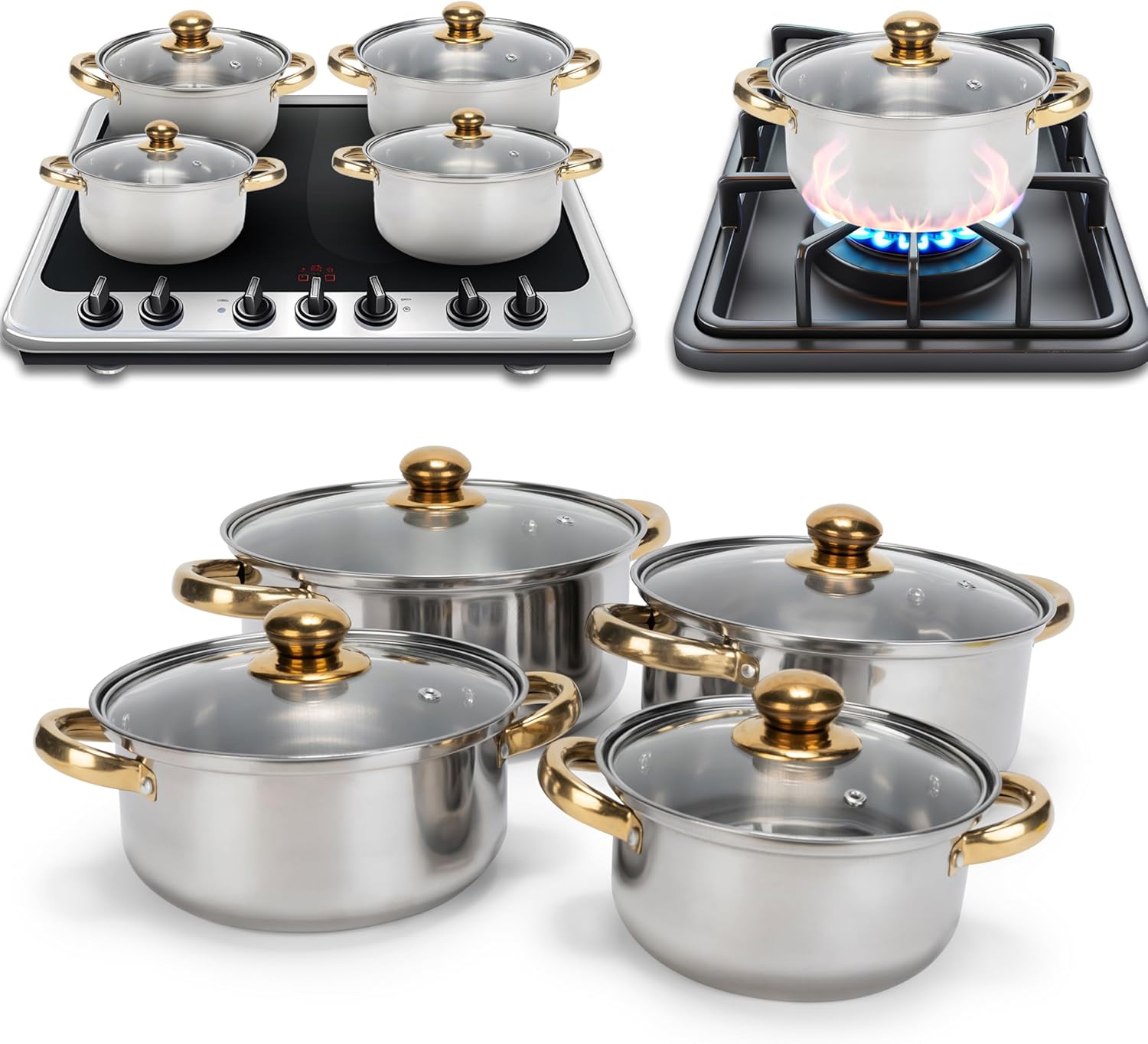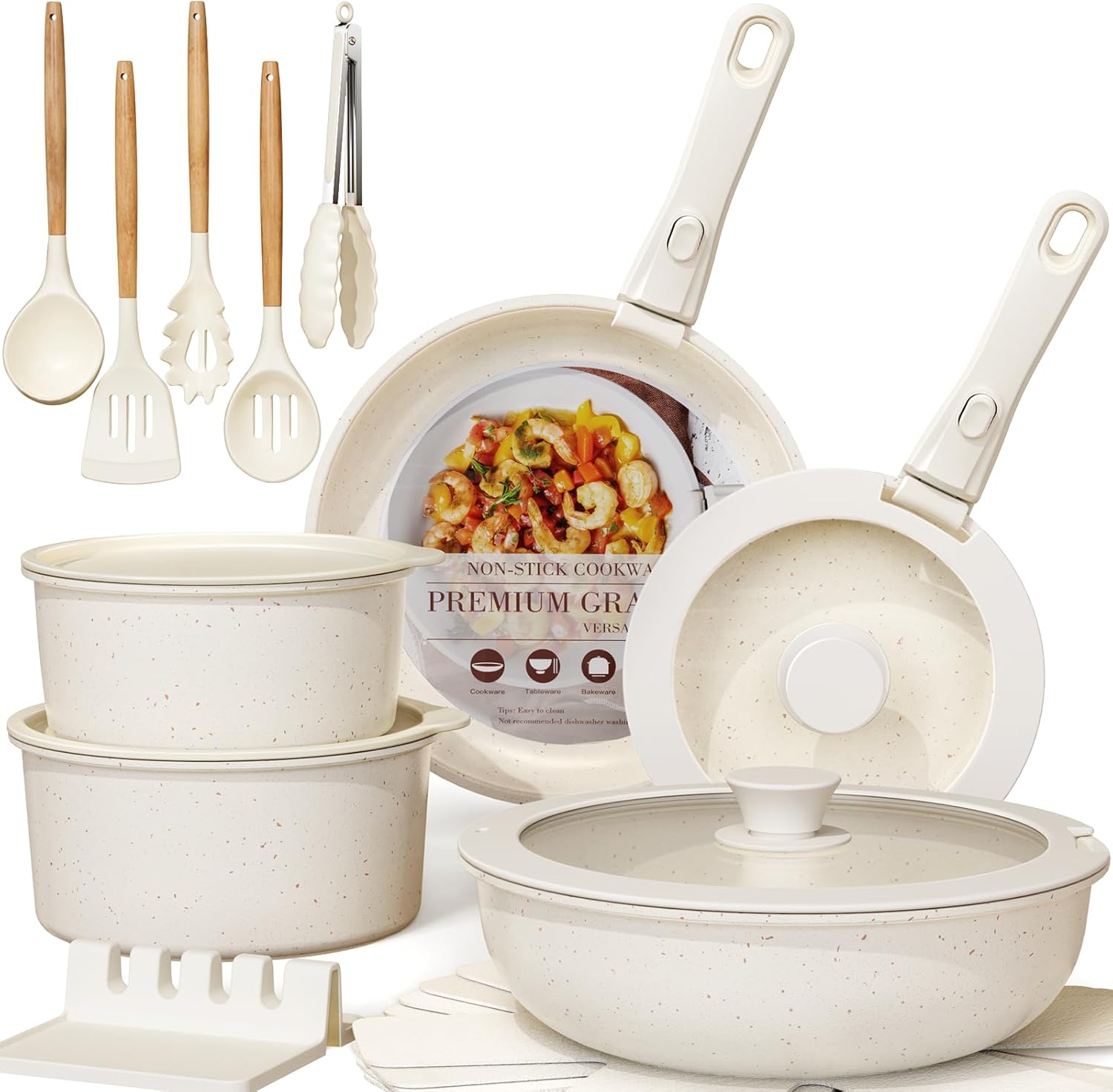Yes, you can put Calphalon cookware in the oven. Most Calphalon pots and pans are designed for oven use, but it’s important to check the specific product details.
Calphalon cookware is popular for its durability and performance in the kitchen. Many home cooks love its nonstick surfaces and even heat distribution. However, questions often arise about its versatility, especially when it comes to oven safety. Can you bake with it?
What temperatures are safe? Understanding these aspects can help you make the most of your cookware. Whether you are roasting vegetables or baking casseroles, knowing if your Calphalon pieces can handle the oven will ensure you get the best results. Let’s explore the oven safety of Calphalon cookware in detail.
Calphalon Cookware Materials
Calphalon cookware is made from various materials. Each material has unique features. Understanding these materials helps you choose the right cookware for your kitchen. Let’s explore the main types: aluminum-based pans and nonstick surface options.
Aluminum-based Pans
Aluminum-based pans are popular for many reasons:
- Lightweight: Easy to handle and move.
- Good Heat Conductivity: Heats evenly for better cooking.
- Durable: Resists warping and scratching.
These pans often come with a hard-anodized finish. This finish adds strength and prevents rust. Most aluminum pans are oven-safe up to 450°F. Always check the specific product guidelines for safety.
Nonstick Surface Options
Nonstick surfaces offer great convenience. They make cooking and cleaning easier. Here are some key points:
- Less Oil Needed: Healthier cooking with less fat.
- Easy to Clean: Food slides off easily.
- Variety of Designs: Available in many styles and colors.
Calphalon provides different nonstick options. Some are safe for oven use, while others are not. Most nonstick cookware can handle temperatures up to 500°F. Always refer to the product label for the correct temperature limits.

Credit: m.youtube.com
Understanding Oven-safe Ratings
When cooking with Calphalon cookware, knowing the oven-safe ratings is important. These ratings tell you if a pan can handle high heat. Using cookware that is not oven-safe can lead to damage or safety issues.
Maximum Temperature Guidelines
Calphalon cookware has specific temperature limits. Here are the general guidelines:
| Cookware Type | Maximum Temperature |
|---|---|
| Nonstick Cookware | 450°F (232°C) |
| Stainless Steel Cookware | 500°F (260°C) |
| Cast Iron Cookware | 500°F (260°C) |
Always check the specific guidelines for your cookware. This ensures safe and effective cooking.
Symbol Recognition
Recognizing oven-safe symbols on Calphalon cookware is key. These symbols provide quick information about heat limits. Here are common symbols:
- Oven Safe Symbol: A simple oven icon indicates oven safety.
- Temperature Mark: Some items show a maximum temperature.
- Hand Wash Only: Indicates care instructions for longevity.
Understanding these symbols helps you make the right choices. Always refer to the product label before use.
Prepping Calphalon For The Oven
Using Calphalon cookware in the oven is simple. Proper prep is key. Follow these steps for the best results.
Cleaning Before Use
Cleaning your Calphalon cookware is important. Here’s how to do it:
- Wash with warm, soapy water.
- Use a soft sponge or cloth.
- Avoid steel wool or abrasive cleaners.
Ensure all food residues are gone. Dry the cookware with a soft towel. This helps prevent sticking.
Gradual Heating
Calphalon cookware needs gradual heating. Sudden temperature changes can damage it. Follow these tips:
- Preheat the oven before placing the cookware inside.
- Start at a low temperature, then increase it.
- Avoid placing cold cookware in a hot oven.
This method keeps your cookware in good condition. It also helps in even cooking.
Common Misconceptions
Many people have misunderstandings about using Calphalon cookware in the oven. These myths can lead to confusion. Knowing the facts is essential for safe cooking. Let’s clear up some common misconceptions.
Myths About Nonstick Coatings
Nonstick coatings are often misunderstood. Here are some common myths:
- Myth 1: Nonstick cookware cannot go in the oven.
- Myth 2: All nonstick coatings are the same.
- Myth 3: Nonstick pans will always scratch easily.
Many nonstick pans, including Calphalon, are oven-safe. Check the product label for temperature limits. Some nonstick coatings are more durable than others. Quality brands use stronger materials.
Metal Utensil Use
Another common misconception involves using metal utensils with nonstick cookware. Here are key points to remember:
| Utensil Type | Impact on Cookware |
|---|---|
| Metal Utensils | Can scratch nonstick coatings if used carelessly. |
| Wooden Utensils | Gentle on nonstick surfaces. Safe to use. |
| Silicone Utensils | Perfect for nonstick cookware. No scratches. |
Using metal utensils can damage the coating. This may reduce the lifespan of your cookware. Opt for wooden or silicone tools instead. They are safer and maintain the surface.
Safety Tips For Oven Use
Using Calphalon cookware in the oven can be safe. Follow these tips for safe handling. Proper techniques help prevent accidents and injuries.
Handling Hot Cookware
Hot cookware can cause burns. Always use oven mitts when removing pots and pans from the oven.
- Allow cookware to cool slightly before handling.
- Use sturdy, heat-resistant mitts.
- Keep a safe distance from the oven door.
Set hot cookware on a heat-safe surface. Avoid placing it on countertops that can melt or burn.
Avoiding Thermal Shock
Calphalon cookware can crack due to rapid temperature changes. Prevent thermal shock by following these tips:
- Do not place hot cookware directly on cold surfaces.
- Avoid adding cold liquids to hot cookware.
- Let cookware cool before washing with cold water.
These steps help maintain the integrity of your cookware. Safe use ensures long-lasting performance.
Calphalon Product Lines
Calphalon offers a variety of cookware lines. Each line has unique features. This makes it easy to find the right fit for your kitchen. Understanding these product lines helps you choose wisely.
Classic Vs. Contemporary
Calphalon’s Classic and Contemporary lines serve different needs.
- Classic: Designed for everyday cooking.
- Contemporary: Features modern design and advanced technology.
Here’s a quick comparison:
| Feature | Classic | Contemporary |
|---|---|---|
| Material | Hard-anodized aluminum | Stainless steel |
| Durability | Very durable | Highly durable |
| Design | Traditional | Modern |
| Heat Distribution | Even heating | Quick heating |
Choose Classic for reliability. Go for Contemporary for style.
Select By Calphalon
Select by Calphalon offers a unique blend of convenience and performance. This line targets busy cooks. It features:
- Versatile cookware options
- Nonstick surfaces for easy cooking
- Oven-safe designs up to 450°F
Here are some popular items:
- Nonstick frying pans
- Cast iron skillets
- Stainless steel pots
These products are designed to simplify cooking. They fit well in any kitchen.
Caring For Your Calphalon
Caring for your Calphalon cookware ensures its durability and performance. Proper care keeps your pots and pans looking new. It also helps them cook food evenly. Follow these steps to maintain your Calphalon cookware.
Post-oven Cleaning
Cleaning your Calphalon after using it in the oven is simple. Follow these steps:
- Let the cookware cool down to room temperature.
- Use warm, soapy water for cleaning.
- Use a soft sponge or cloth. Avoid steel wool.
- Rinse thoroughly and dry with a soft towel.
For tough stains, soak the cookware in warm, soapy water for a few minutes. Then, gently scrub with a non-abrasive sponge.
Maintenance Tips
Regular maintenance keeps your Calphalon cookware in top shape. Here are some essential tips:
- Avoid high heat: Use medium to low heat for best results.
- Use non-metal utensils: This prevents scratches on the surface.
- Store properly: Place cloth or paper towels between stacked pans.
- Check for warping: Inspect your cookware regularly for any warping.
Following these tips will extend the life of your cookware. Enjoy cooking with your Calphalon for years to come.

Credit: m.youtube.com
Alternatives To Oven Use
Not all cooking methods require an oven. Many delicious meals can be made on the stovetop. Using different cookware brands can also provide great results. Here are some options to consider for your cooking needs.
Stovetop Recipes
Cooking on the stovetop can be easy and effective. Here are some tasty stovetop recipes:
- Stir-Fried Vegetables: Quickly cook a mix of your favorite vegetables.
- One-Pot Pasta: Combine pasta, sauce, and protein in one pot.
- Skillet Chicken: Sear chicken breasts and finish with a sauce.
- Soups and Stews: Cook hearty soups in a large pot.
- Fried Rice: Use leftover rice for a quick meal.
These recipes offer a range of flavors. They are also simple to prepare. Enjoy cooking without the oven!
Other Cookware Brands
Many brands offer cookware that can go in the oven. Consider these options:
| Cookware Brand | Oven Safe? | Material |
|---|---|---|
| Le Creuset | Yes | Ceramic, Cast Iron |
| All-Clad | Yes | Stainless Steel |
| Pyrex | Yes | Glass |
| Cast Iron | Yes | Cast Iron |
| GreenPan | Yes | Ceramic Non-Stick |
These brands provide quality options for oven cooking. Each material has its benefits. Choose the one that fits your cooking style.

Credit: misen.com
Frequently Asked Questions
Can Calphalon Cookware Go In The Oven?
Yes, many Calphalon cookware pieces are oven-safe. However, the maximum temperature can vary based on the type of cookware. Always check the manufacturer’s guidelines for specific temperature limits to avoid damage. Non-stick coatings and handles may have different tolerances, so it’s essential to verify before use.
What Temperatures Are Safe For Calphalon Cookware?
Most Calphalon cookware is safe up to 450°F. However, certain types can withstand higher temperatures. Always refer to the product instructions for exact limits. Using cookware beyond its heat tolerance may lead to warping or damage. Proper care extends the lifespan of your cookware.
Is Calphalon Non-stick Safe For Oven Use?
Yes, many Calphalon non-stick pans are oven-safe. However, it’s crucial to check the specific product details. Some non-stick coatings have temperature limitations. Exceeding these limits can cause deterioration of the non-stick surface. Following the guidelines ensures safe and effective cooking.
Can You Use Calphalon Lids In The Oven?
Most Calphalon lids are oven-safe, but check for specific materials. Glass lids can typically withstand high temperatures, while some plastic handles may not be oven-safe. Always consult the product instructions to confirm safety. Using lids appropriately enhances cooking efficiency and flavor retention.
Conclusion
Calphalon cookware is safe for oven use. Many pieces can handle high heat. Always check the bottom for the oven-safe symbol. Use caution with handles; they may get hot. Cooking in the oven can create delicious meals. Enjoy the flexibility of using Calphalon in different cooking methods.
With the right care, your cookware will last a long time. Make the most of your kitchen adventures. Explore new recipes and enjoy the process. Happy cooking!




Leave a Reply